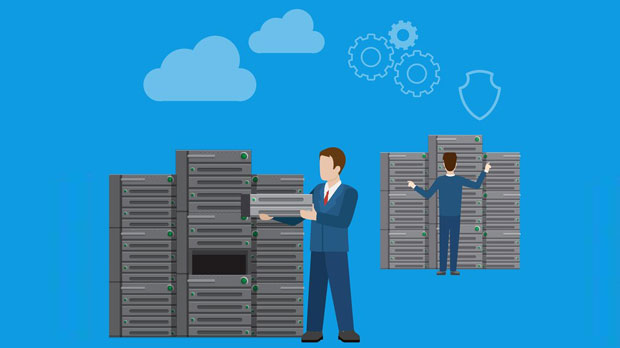Unmetered residential proxies refer to a type of proxy service that allows users to connect to the internet using IP addresses provided by real residential devices, without imposing any data usage restrictions or bandwidth caps. Unlike traditional proxies, which often have data limits or require users to purchase additional bandwidth, unmetered residential proxies provide unlimited access. They are primarily used for a variety of applications such as web scraping, online anonymity, market research, and bypassing geo-restrictions. The key advantages of these proxies include enhanced privacy, better security, greater reliability, and the ability to mimic natural user behavior, making them ideal for businesses and individuals who need seamless and unrestricted internet access. This article delves into these benefits and more, exploring why unmetered residential proxies are increasingly becoming a popular choice in today's digital landscape. What are Unmetered Residential Proxies?Unmetered residential proxies are a special type of proxy service that offer unlimited data transfer and bandwidth for users who need to route their internet traffic through residential IP addresses. These IPs are sourced from real devices—such as smartphones, computers, and routers—connected to the internet in homes across the world. When users access the internet through these proxies, their online activities are seen as originating from a regular residential user, rather than from a server or data center. This provides a much higher degree of authenticity and discretion.Residential proxies are distinct from other types of proxies, such as datacenter proxies, which rely on IP addresses hosted in data centers. The core difference lies in the source of the IP address; residential proxies are assigned by Internet Service Providers (ISPs) and are linked to legitimate residential connections. This provides a higher level of trust and a more organic internet presence. Unmetered residential proxies, as the name suggests, offer unlimited usage, meaning that users do not have to worry about data usage limits or bandwidth throttling that can occur with traditional proxy services.Key Advantages of Unmetered Residential Proxies1. Enhanced Privacy and SecurityOne of the primary advantages of using unmetered residential proxies is the enhanced level of privacy and security they provide. Since the IP addresses used are residential and linked to real users' devices, it is far more difficult for websites to detect and block these connections. This makes them an excellent choice for users looking to maintain their anonymity while browsing the web, scraping data, or engaging in activities that require online privacy.For businesses conducting market research or competitive analysis, unmetered residential proxies allow them to access data without risking detection or being blocked. This is especially crucial when scraping websites or engaging in other actions that may be viewed as suspicious by the target site. Additionally, because these proxies mask the user’s real IP address, the chances of experiencing cyber-attacks, such as DDoS (Distributed Denial of Service) attacks, are significantly reduced.2. Greater Reliability and StabilityAnother significant benefit of unmetered residential proxies is their greater reliability and stability. Residential IPs are much harder to detect and block, as they are tied to actual home connections. This means that, unlike datacenter proxies, which are often flagged and blacklisted by websites, residential proxies are more difficult to identify and, therefore, provide a more stable and long-term solution for users.The absence of data limits and bandwidth caps ensures that users can maintain continuous access without interruptions. This is particularly valuable for businesses that rely on consistent internet access for their operations, such as those conducting large-scale data scraping or managing social media accounts. Additionally, unmetered proxies are less likely to experience slowdowns or connection drops, ensuring a smoother and more reliable user experience.3. Ability to Bypass Geo-RestrictionsUnmetered residential proxies allow users to access content and services that may be restricted based on geographic location. Since the IP addresses are tied to actual residential locations, users can appear to be accessing the internet from a different country or region. This is especially useful for individuals and businesses that need to bypass geo-blocked content, such as streaming services, news websites, or e-commerce platforms.By using unmetered residential proxies, users can access region-specific content and even conduct market research in multiple countries without being restricted by local regulations or internet filters. This capability is increasingly important in the globalized world of business, where accessing a wide variety of international resources is crucial for competitive advantage.4. Mimicking Real User BehaviorOne of the unique features of unmetered residential proxies is their ability to mimic real user behavior. Since they are tied to actual residential devices, the traffic routed through these proxies is seen as legitimate, organic user activity. This is an important advantage for tasks such as web scraping, where mimicking the behavior of a real user is essential to avoid detection.When scraping data, for example, unmetered residential proxies make it harder for websites to distinguish between automated bots and human users. This increases the effectiveness of data collection efforts and reduces the likelihood of being blocked or flagged. Additionally, the use of real residential IPs can help businesses avoid issues such as rate-limiting, which often occurs when multiple requests are made from the same datacenter IP address.5. Improved Success Rates for Web Scraping and AutomationFor businesses involved in web scraping or automated tasks such as lead generation or social media management, the use of unmetered residential proxies can dramatically improve success rates. Many websites, especially large platforms, have sophisticated anti-bot measures in place to detect and block suspicious activity. By using residential IP addresses, which are far more difficult to detect as bots, users can avoid these anti-bot defenses.Furthermore, because unmetered residential proxies provide unlimited data transfer, users can scale their scraping or automation efforts without worrying about hitting data limits. This allows for more extensive and efficient data collection, giving businesses a competitive edge in industries that rely heavily on real-time information.6. Cost-Effectiveness in the Long RunAlthough unmetered residential proxies may come with a higher upfront cost compared to other proxy types, they can prove to be more cost-effective in the long run. The ability to access unlimited data and bypass geo-restrictions without additional fees means that users do not need to worry about purchasing extra bandwidth or incurring unexpected charges.For businesses that rely heavily on proxies for ongoing operations, such as e-commerce platforms, digital marketing firms, or data analysts, the absence of data usage restrictions makes unmetered residential proxies a cost-efficient solution. They eliminate the need to monitor usage or worry about overage fees, which can add up quickly with traditional proxy services.Unmetered residential proxies provide a range of benefits, including enhanced privacy, security, reliability, and the ability to bypass geo-restrictions. They are particularly valuable for businesses involved in web scraping, data analysis, and market research, where uninterrupted and legitimate internet access is critical. Despite their higher initial cost, the long-term advantages—such as unlimited data usage and the ability to mimic real user behavior—make unmetered residential proxies a highly effective tool for businesses and individuals alike. Whether you are trying to maintain anonymity, automate tasks, or gain access to global content, unmetered residential proxies provide the versatility and reliability needed for success in today's digital world.
Sep 01, 2025



































































